THIS CONTENT IS BROUGHT TO YOU BY NIBIO - Norwegian Institute of Bioeconomy Research - read more
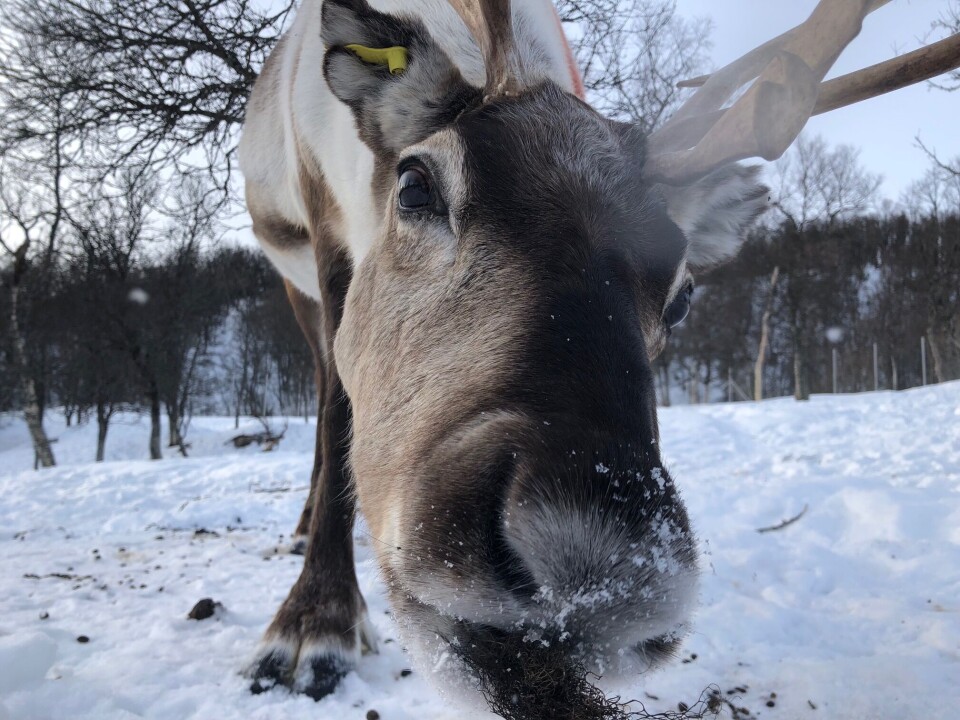
Reindeer sleep while chewing their cud
Researchers report that the more time reindeer spend ruminating, the less sleepy they become. Chewing cud reduces the animals' need for sleep in the summer, which gives them more time to find food.
“These are the first physiological data supporting traditional reindeer herders’ repeated calls for ‘pasture peace’ in areas of human activity. The reindeer have a great need for undisturbed rumination and rest,” researcher Gabi Wagner of the Norwegian Institute of Bioeconomy Research (NIBIO) says.
Rumination is the re-chewing of partially digested food, which is an important component of digestion for reindeer and other ruminants

Wagner's research team has investigated how changes in day length affect the sleep rhythm of reindeer. The findings were published in Current Biology today.
Brain wave recordings (EEG) in reindeer revealed that brainwaves during rumination resemble those during non-REM sleep, suggesting that the reindeer are more rested after ruminating.
In other words: The brainwave patterns observed during rumination resemble those they have when the reindeer are asleep.
Combine sleep and digestion
The researchers speculate that this multitasking might help reindeer get enough sleep during the summer months, when food is abundant and reindeer feed almost 24/7 in preparation for the long and food-sparse Arctic winter.
“The more reindeer ruminate, the less additional non-REM sleep they need,” neuroscientist Melanie Furrer of the University of Zürich says.
“We think it's very important that they are able to save time and cover their sleep and digestive needs at the same time, especially during the summer months,” she says.
Affected by the midnight sun
Light-dark cycles are absent in the Arctic during winter and summer, and previous studies have shown that Arctic-dwelling reindeer do not display circadian behavioural rhythms during these seasons
They tend to be more active during the daytime during the spring and autumn equinox, when light-dark cycles are present. However, it was unknown whether these seasonal differences also impacted how much — and how well — reindeer sleep.
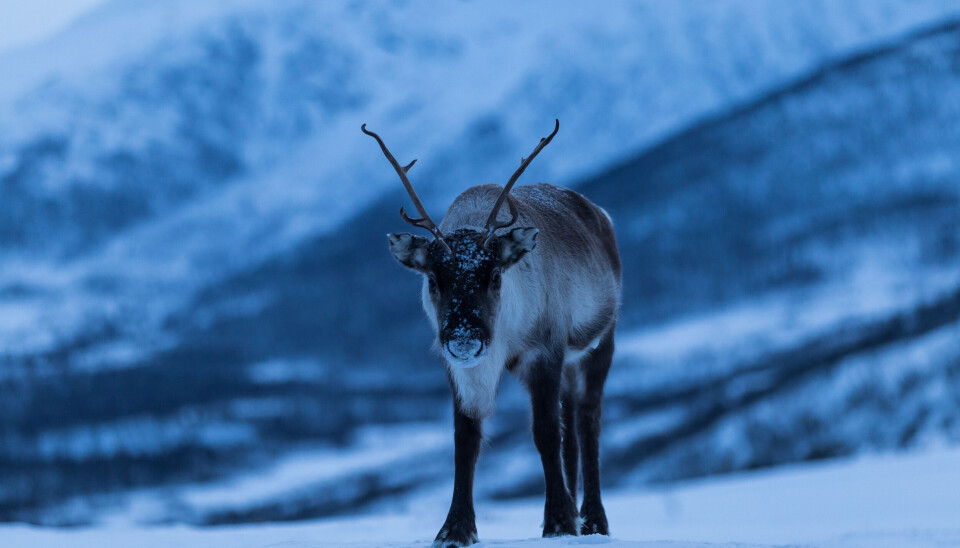
Measure sleep patterns using EEG
To investigate the influence of seasonal light-dark cycles on reindeer sleep patterns, the researchers performed non-invasive electroencephalography (EEG) on Eurasian tundra reindeer (Rangifer tarandus tarandus) in Northern Norway during the autumn equinox, summer solstice, and winter solstice.
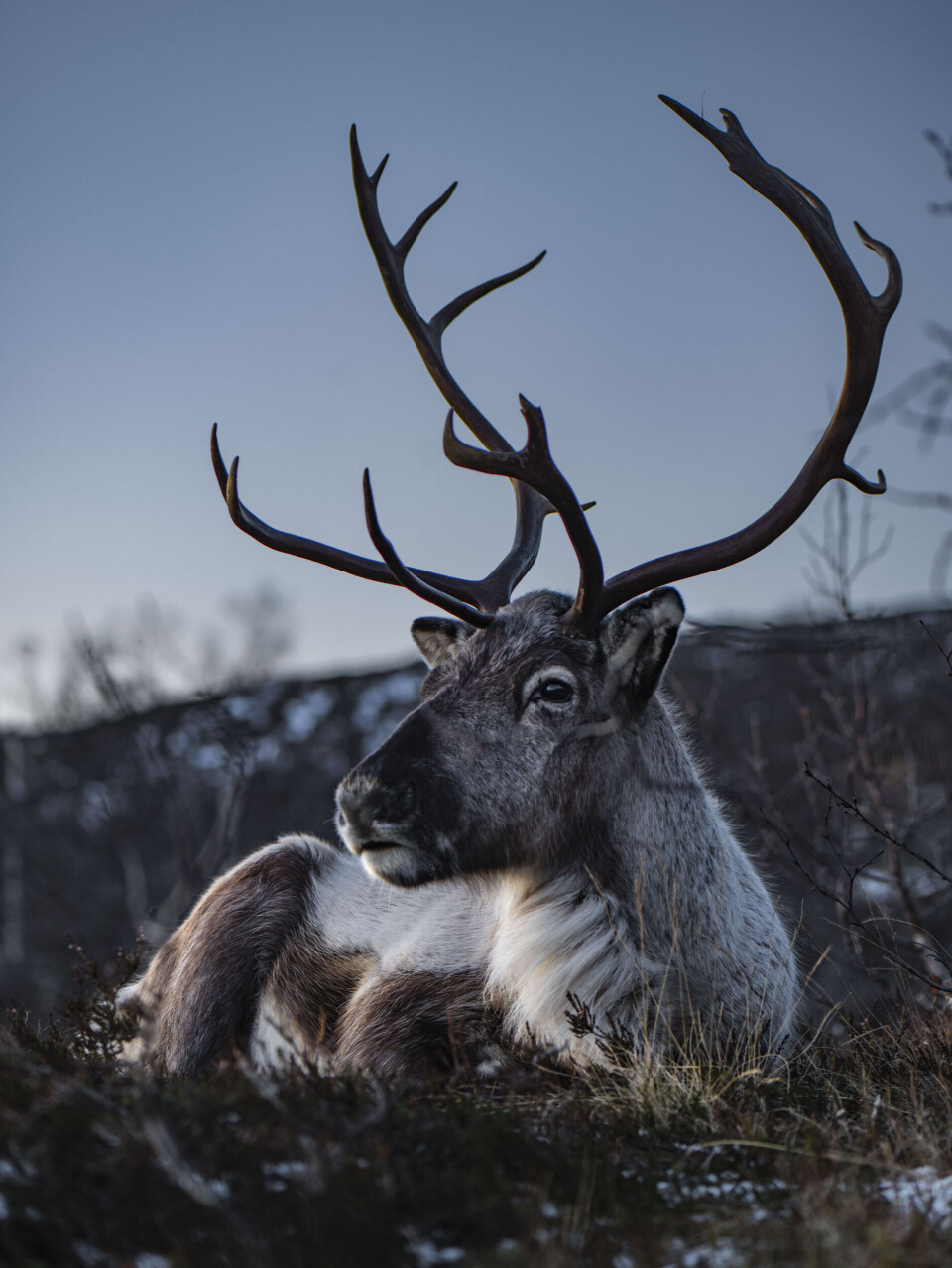
The reindeer, who were all adult females, were part of a captive herd at UiT The Arctic University of Norway, and the experiments were conducted in indoor stables with controlled lighting, unlimited food, and a constant temperature.
Is sleep and rumination the same thing?
The researchers found that reindeer slept approximately the same amount during winter, summer, and autumn, despite the fact that they were much more active during the summer. This is in contrast to other species who change the amount they sleep in response to environmental conditions.
On average, the reindeer spent 5.4 hours in non-REM sleep (deep sleep), 0.9 hours in REM sleep, and 2.9 hours ruminating during a 24-hour period, regardless of season.
“The total amount of sleep and rumination is thus very similar to the average requirements of adult humans. The fact that reindeer sleep the same amount during winter and summer implies that they must have other strategies to cope with limited sleep time during the Arctic summer,” Wagner says.
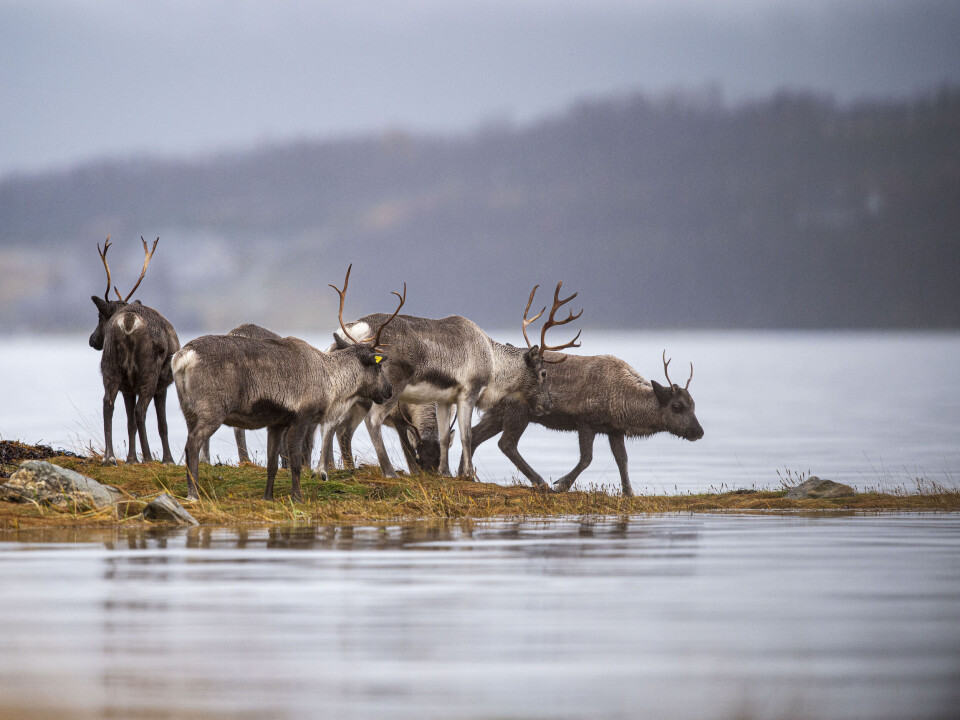
The research team considered various explanations. One possible strategy is the opportunity for rest during rumination. Domestic sheep, goats, cattle, and lesser mouse-deer have all been previously observed to produce sleep-like brain patterns during rumination, but it was unclear whether rumination could serve a similar restorative function to sleep.
The researchers found that the reindeer’s EEG readings during rumination resembled brainwave patterns that are indicative of deep sleep, or non-REM sleep, including increased slow-wave activity and sleep spindles.
The behaviour of the ruminating reindeer resembled that of sleeping reindeer — both stood or sat still, and they were less reactive to disturbances such as neighbouring reindeer sitting down or getting up. The researchers measured this by noting when the reindeer looked towards the neighbouring reindeer.
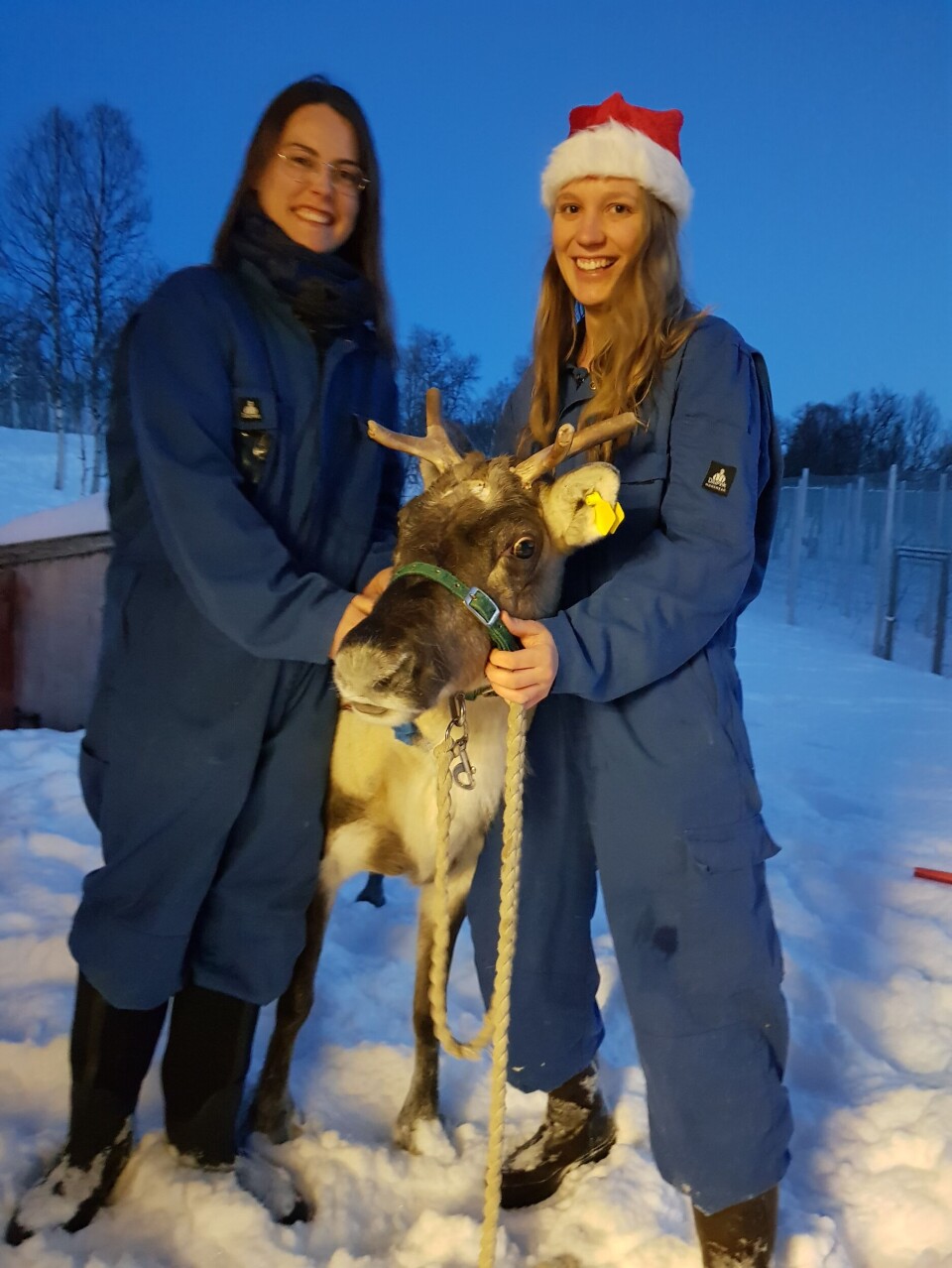
Reindeer multitask when they chew their cud
Next, the researchers tested whether rumination could reduce the reindeer’s need for sleep. This was done by depriving the reindeer of sleep for two hours and measuring their brain waves during sleep before and after this deprivation.
The results showed that the reindeer had increased slow-wave activity, which is indicative of a build-up of ‘sleep pressure’—the unconscious biological drive for more and deeper sleep — suggesting that reindeer experience deeper sleep following sleep deprivation.
However, when the reindeer ruminated, this slow-wave activity was decreased during subsequent sleep periods, and the more they ruminated, the more the slow-wave activity decreased. In other worde, the more cud they chewer, the less sleepy they became.
“This suggests that rumination reduces sleep pressure, which could benefit the reindeer because it means they don’t have to compromise on sleep recovery when they spend more time ruminating,” Furrer explains.
“Rumination increases nutrient absorption, so it’s crucial for reindeer to spend enough time ruminating during the summer in order to gain weight in anticipation of winter.”
Since reindeer appear to sleep while ruminating only some of the time, follow-up studies should compare the impact of rumination while sleeping with rumination while awake, and would also ideally measure reindeer behaviour and sleep in more natural outdoor conditions. However, such measurements would require surgically implanted EEG sensors rather than the non-invasive surface electrodes used in this study.
Reference:
Furrer et al. Reindeer in the Arctic reduce sleep need during rumination, Current Biology, 2023. DOI: 10.1016/j.cub.2023.12.012

This content is paid for and presented by NIBIO - Norwegian Institute of Bioeconomy Research
This content is created by NIBIO's communication staff, who use this platform to communicate science and share results from research with the public. NIBIO is one of more than 80 owners of ScienceNorway.no. Read more here.




































